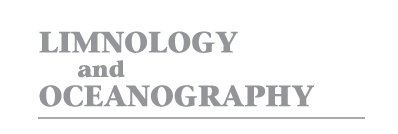Element cycling and aquatic function in a changing Arctic
New publication by Peter J. Hernes, Suzanne E. Tank, Mikael K. Sejr, Ronnie N. Glud

Abstract:
Arctic systems are under intense pressure from anthropogenic activities, with climate change in particular inducing rapid change in the interlinked cycling of water and various biogeochemical constituents, and thus also the ecological processes that depend on these cycles. This special issue for Limnology and Oceanography explores our changing Arctic, with contributions across the watershed-lake-river-estuary-coastal-open ocean continuum, and foci ranging from physical and chemical processes to food webs. Some specific areas of focus include legacy pollution from mines, greenhouse gas emissions from lakes, riverine fluxes of materials, as well as the balance between primary production and respiration in the water column and benthos in marine systems. While varied in focus, as a collection the papers in this special issue do provide direction into key avenues for future effort. For example, while Arctic systems are historically understudied due to financial and logistical costs, long-term monitoring efforts are clearly critical for documenting change, despite the challenges. In freshwater systems, predicting biogeochemistry, and thus ecology, based on landscape characteristics and lake morphology is an ongoing practice that seems particularly promising for both upscaling and decisions on focusing future research effort. In marine and coastal systems, complementing specific local studies with large-scale cross-disciplinary monitoring programs is clearly required for elucidating long-term trends. While baseline research is critical for documenting the Arctic as it currently stands, and constitutes the majority of current research efforts, ongoing support for longterm observatories and expanding remote sensing capabilities is a fundamental requirement for tracking change.
doi: 10.1002/lno.11717
